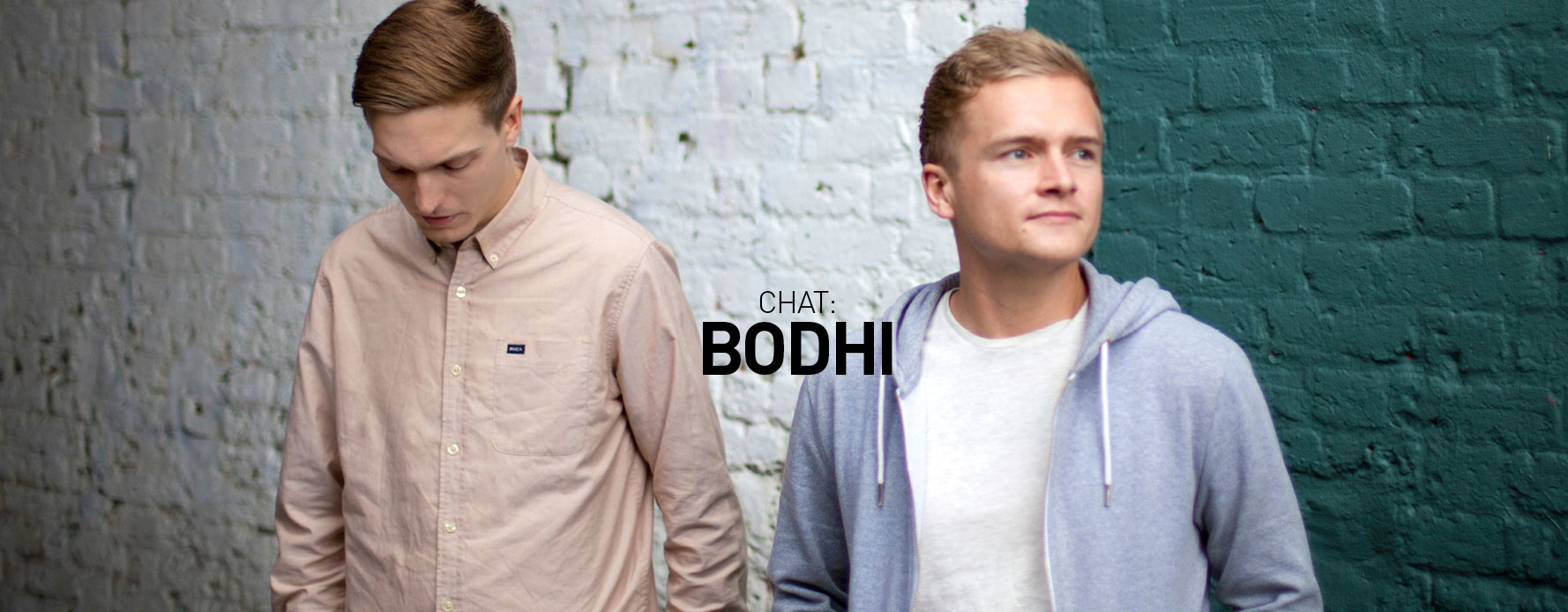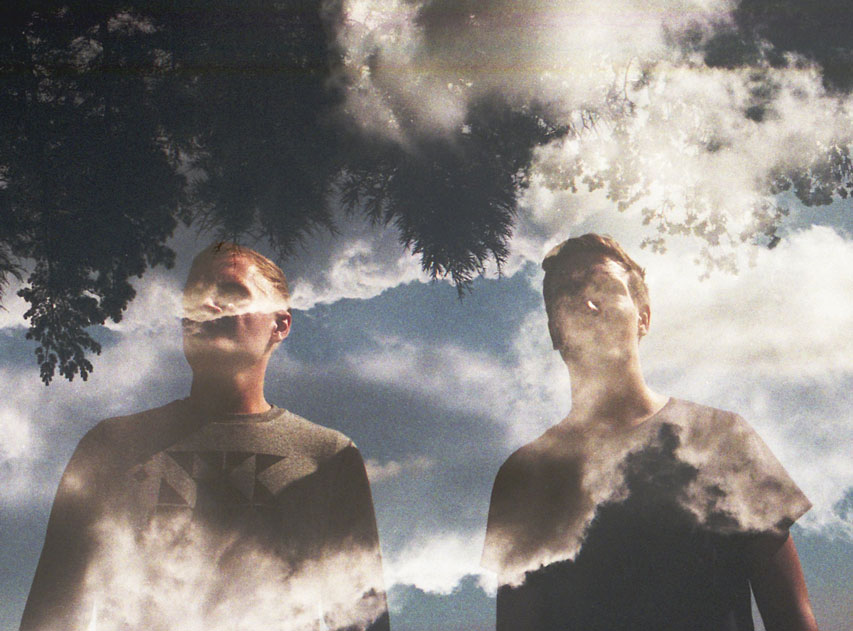Bodhi Doesn’t Care About Genre Names
 Thirsty for JUICE content? Quench your cravings on our Instagram, TikTok and WhatsApp
Thirsty for JUICE content? Quench your cravings on our Instagram, TikTok and WhatsApp

Text Alfonso Gomez + Rathika Sheila
Olly Howells and Luke Welsby make up the Sanskrit word-appropriating Cardiff duo Bodhi – yes, we know what you’re thinking; less the exotic name and more about where they came from. Situated in South Wales, Cardiff is better known for its band exports than the dance scene, both Olly and Luke would admit as much – but that is to say nothing of their talent. If anything, Bodhi proved that the city could very well be part of the UK bass canon, what not with their recent house-informed releases. (Just don’t call it deep house). JUICE spoke to the duo hours before their maiden show in Malaysia and learnt that the boys weren’t very fond of genre names…
You’ve mentioned that South Wales has a good rep for producing good bands. But what was it like for the electronic/dance scene though?
Luke It’s pretty good. We’ve got a couple of friends who haven’t made names for themselves, but their music is really good.
Olly They play like banging disco/house sort of music. ‘Cos Cardiff is a small city, the scene is kinda like a community where everyone knows each other and it’s just really positive.
L Yeah, like we don’t have massive venues ‘cos most of our clubs are between a 100 to 400 capacity, but it’s a great thing! It’s a nice sort of family vibe to it.
O If you go out to a nightclub a couple of times, and by the third time you sort of know everybody there.
Bodhi is a Sanskrit word that means enlightenment. Is this the mood or vibe you guys attempt to convey via your music?
L I don’t think we purposefully tried to, but I like to think we do have that in our music. It was just one of those things where we were like, “What should we call ourselves?” And then we wanted to veer away from the more obvious names that have been used and it’s a really nice word as well. I came across it on the internet… randomly.
Both of you used to be in bands before finding common ground in electronic choons. Prior to that though, did you have the mentality that dance music was somehow ‘lesser’ like a lot of other band kids?
L When we were in bands? Definitely. I was just [about] rock music, drums, guitar, and bass, so electronic music wasn’t as prominent for me.
O It slowly crept in quicker for me. I was into hip hop at the same time as bands, so even though I wasn’t fully into dance music, I was into like producers, but I guess it wasn’t until later on after years of being in a band that I fully got into it.
And how did that transition happen?
L It’s more to do with friends coming over and going, “Hey, listen to this!” And going to nightclubs and wondering what this music was.
O Definitely hearing the music within the proper context accelerated the love for it.
Bodhi’s first big break was with the dance remix of The xx’s ‘Angels’ and Jamie xx is now more known for being a DJ-producer (which is sorta like you guys) – do you feel like the music scene now has made bands ‘obsolete’, for a lack of a better word?
L I don’t think it’s made them obsolete, it’s certainly like they’ve taken a step back because of the popularity.
O Yeah, it has in a way but everything comes in cycles so…
L … it’ll be back with a vengeance.
Coming from a band background, do you guys miss playing live now that you often do DJ gigs?
L I do miss playing live. When we recorded our music, we tried putting in as much live recordings — guitar, drums — and stretching it, and make it sound not like a guitar, and play a lot of percussions into our music. We definitely keep the ‘live’ aspect as much as we can.
O It’s just that it’s not a performance aspect. But in the future, that’s definitely something we’d consider.
The two of you only started producing together, what, in 2012, 2011? How was your dynamic back then and how has it changed since?
L Probably become a lot more… good? (Laughs) We’ve just learnt how to work with each other.
O We know our strong and weak points.
L ‘Cos we share a really similar sense of humour and that’s what makes our relationship easier with each other ‘cos we can just have stupid jokes with each other and if there’s any tension it sort of just passes really quickly. And we’ve definitely grown a lot more together.
You guys were big on sampling – what are the challenges of the art of sampling beyond the legality of some samples?
L I think one of the main things with sampling is trying to make the sample not sound like its original [form] and to make it different.
O To give it its own story.
L Sometimes it’s easy to hear that [same] vocal in another 10 tracks, but it’s how you make it your own, and create something that’s very different in comparison to what it was.
O Whenever I use a sample, I always like knowing everything about that sample — like the history and where it came from, who else used it.
Everyone says the internet has made it easier for DJ-producers to get recognition thanks to SoundCloud and YouTube, but it’s not like every act will instantaneously get traction after uploading a track. How did you guys do it? Pure luck or is there something other acts can emulate to get blog traction?
L Yeah, it was as much luck as it was persistence. Like, I sent it around to a bunch of labels and I was lucky enough to get a response for the very, very early stuff.
O And it’s all about timing.
L Yeah, ‘cos if a label or a manager has already got X amount of projects to handle and even if the music is that good, they might just say they can’t physically do it, so it’s a bit of everything.
UK bass, a genre you guys are oftentimes associated with, is such a loose umbrella term. What do you make of it? Have we reached a ‘post-genre’ point?
L Genres are weird because they mean something different to everyone. I personally don’t believe in genres unless it’s for personal references.
O You can’t get too specific, so we give them a broad blanket term like ‘house’ and that’s good enough.
Deep house is a genre name we see popping up again a lot these days, and you guys have had tracks categorised as that – what’s the attraction to it today, you think? A few critics – or should we say elitists? – have argued that it’s something of a trend. Do you agree with that notion?
O Stuff that’s being labelled deep house now isn’t really true deep house, it’s just a term that’s being stuck on the current new wave of music so it can be branded in some sort of way.
L It’s a very Americanised commercial thing, it’s just to kind of round up everything and just say ‘deep house’. I’m not a big fan of all these subgenre things…
O … I don’t really care what we get branded as.
L Yeah, I really don’t care.
We saw a photo of Olly crate-digging in Seoul. We’re curious, what are the vinyl selections like crate-digging in countries with not as much history in dance music as the Western world?
L We picked things like Korean disco.
O Just the weirdest stuff we could find!
L We were looking at the covers and going, “Well… we could make something out of this — whatever tiny bit of sample.”
O I picked up a children’s choir album.
L We’ll make something out of anything and I think that’s the beauty of crate-digging. It really doesn’t matter what you pick because you didn’t necessarily buy those specific records to play before making more music. Like this stuff has probably never been used by anyone in the dance music community, and that’s what special about it.
There was an interview where you mentioned that your dream decade for dance music was the ‘70s. What about that era was defining of club culture to you?
L Everything.
O Everything just sort of just stemmed from that — disco, and that’s when clubs started becoming nightclubs and the DJs stopped being ‘that guy in the corner’ and became the focal point. We wouldn’t be doing what we’re doing without that era.
What’s the first thing that comes to mind when we say JUICE?
L Drink.
O Notorious BIG’s Juicy.
ADSC Presents Bodhi went down on Friday 18 September at Lust KL.
www.soundcloud.com/bodhi-music
www.www.facebook.com/wearebodhi


 Get Audio+
Get Audio+ Hot FM
Hot FM Kool 101
Kool 101 Eight FM
Eight FM Fly FM
Fly FM Molek FM
Molek FM